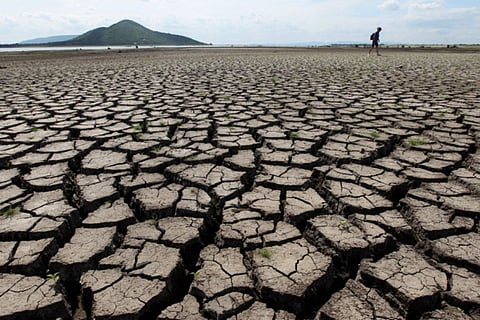Link aid to emissions progress
It is not hard to understand the instinct to value growth ahead of the climate

The United Nations climate talks in Lima have highlighted two fundamental sticking points over how to deal with climate change. First, major developing nations are resisting calls to cut their emissions. Second, developing nations want rich nations to provide them with more money for adapting to a changing planet.
That raises an unsettling question: Is it time to tie those two things together? Should wealthy countries demand that poor countries reduce emissions in return for more climate aid?
In the abstract, that idea borders on repugnant. The people who stand to lose the most from climate change — farmers, those who live in flood zones, the poor in general — typically have scant influence over whether their governments adopt policies to reduce the use of fossil fuels. Making assistance for climate adaptation contingent on policy changes, in an attempt to compel those governments to act, effectively treats those people as leverage.
But the status quo is little better, by treating them as barely worth helping. The Green Climate Fund, created by the United Nations in 2009 to pay poor countries for damage caused by climate change, just announced that governments have committed $10 billion (Dh36.78 billion). Even assuming those pledges are honoured, that pales against the goal of spending $100 billion a year by 2020, or the $150 billion in annual damage climate change is expected to cause by 2025. (US Congress has so far refused to contribute to the fund.)
Developing countries insist they deserve more help. And they have got a point: The greatest share of carbon dioxide and other planet-warming gases already in the atmosphere was released by the US, with most developing nations far behind.
And there is little that some of the smallest and poorest countries can do as the floodwaters rise and droughts increase. Nor is there any justification for withholding aid from nations whose survival is at stake, such as Kiribati.
At the same time, western countries have an equally valid case: Without greater emissions reductions from large developing countries — not just China, but also India, Brazil and Indonesia, to name a few — averting serious changes to the planet will be hard. The margins are just too slim. Yet, those countries have bigger problems than curbing emissions. Brazil’s leaders say economic growth is more important; so too do India’s. “India’s development imperatives cannot be sacrificed at the altar of potential climate changes many years in the future,” India’s Power Minister, Piyush Goyal, was quoted as saying by the New York Times. “The West will have to recognise we have the needs of the poor.”
It is not hard to understand the instinct to value growth ahead of the climate. So it is equally understandable that changing those policies will require tangible incentives. Those incentives do not need to take the form of money for adaptation. After all, not every developing country is in an equal amount of peril. Western countries could also offer to help pay for the emissions reductions they are urging India and others to make. (Those reductions may well be in India’s self-interest, but its government does not seem to agree.) If European countries want India to clean up its coal plants more than India wants it, they may have to shoulder some of the cost. That may even make economic sense. Every tonne of carbon kept out of the atmosphere has the same benefit for the climate, but not every tonne costs the same amount of money to eliminate. If the US or Europe can achieve greater emissions reductions in Indonesia than at home for the same cost, shouldn’t they try?
As the UN talks continue to produce results that nobody thinks are sufficient, that kind of explicit quid pro quo may become necessary. It would be nice if every country acted in the common good, whether the good in question is cutting emissions or protecting the most vulnerable. Until then, there is money, and what it can buy.
— Washington Post
Christopher Flavelle writes editorials on health care, economics and taxation for Bloomberg View.



